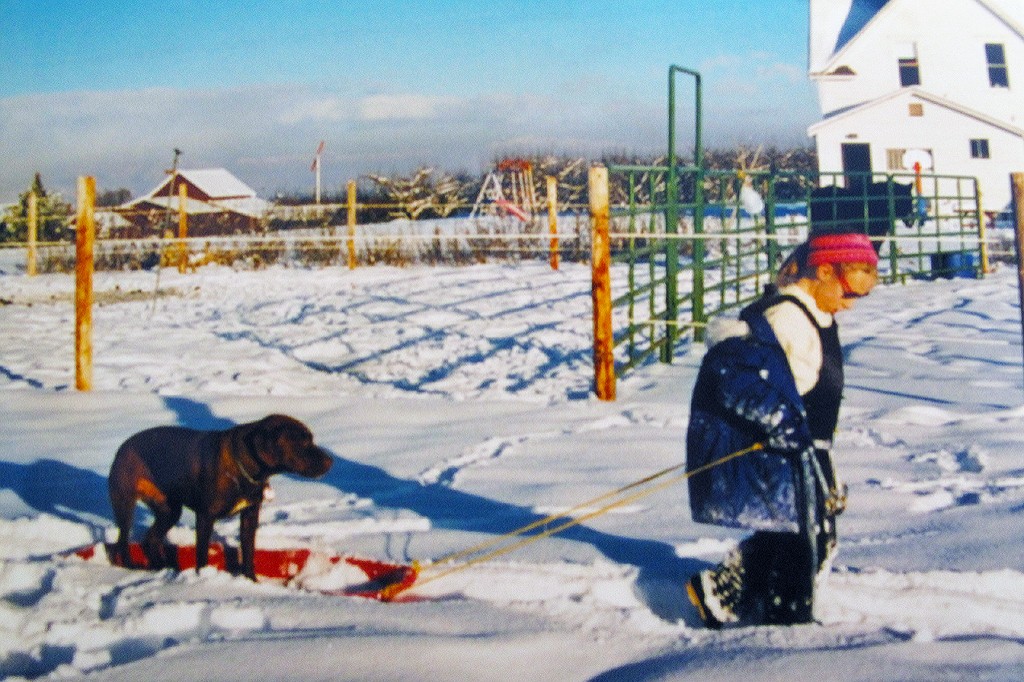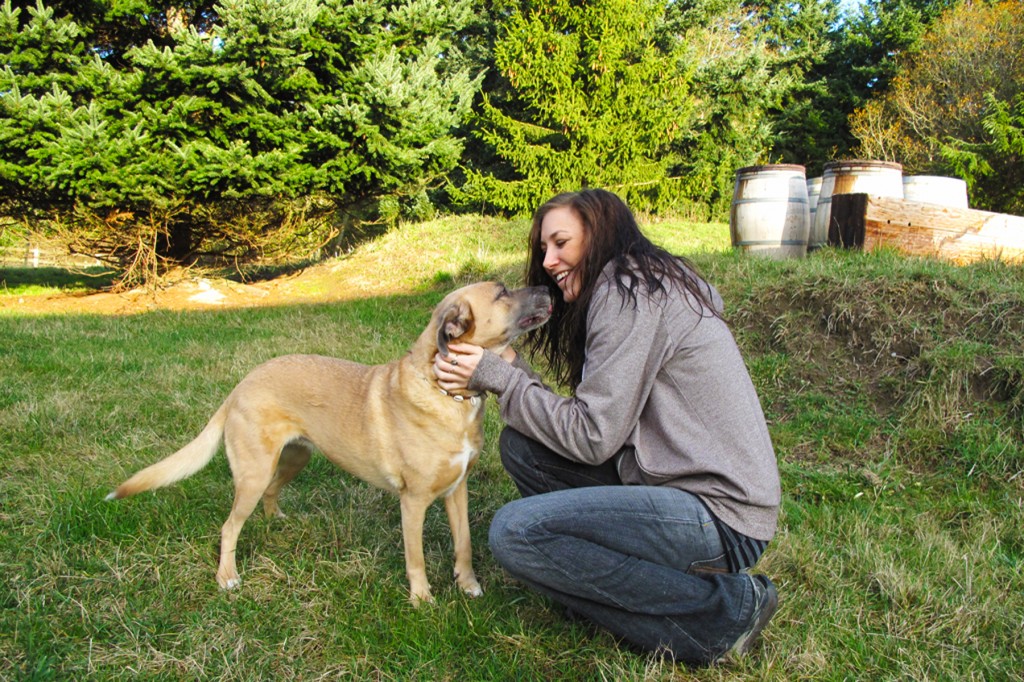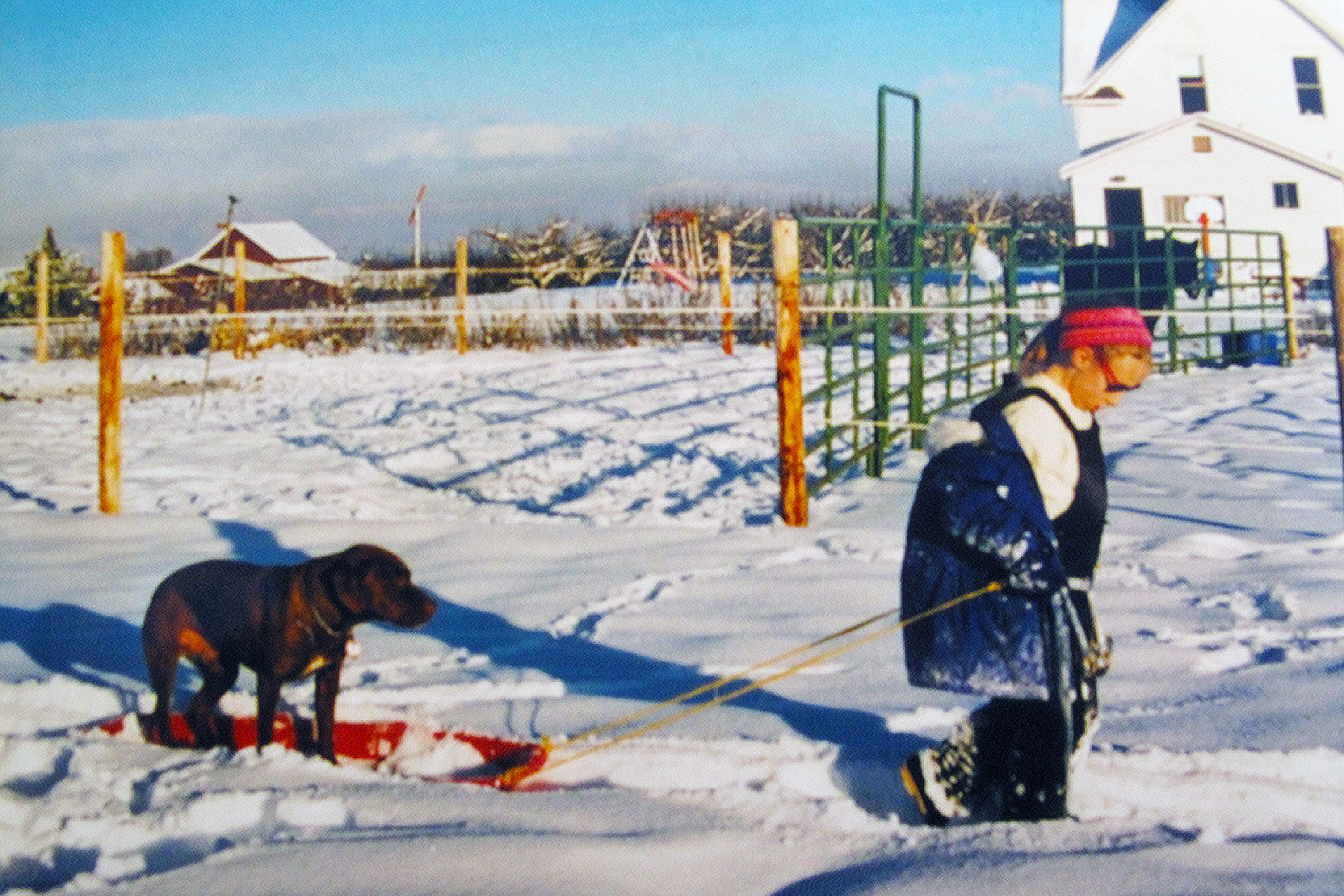
I might not even exist if it weren’t for a dog named Mindy.
She was my dad’s golden retriever when he was in veterinary school at Washington State University, where my mom worked in the radiology department as a veterinary technician. When my dad brought Mindy in for an x-ray, my mom checked her in by playfully writing “10” instead of my dad’s name, referring to the popular Bo Derek movie of the time. He saw what she’d written and asked her out on a date. Soon they were married, and eventually they decided to start having children. That’s when I entered the world.
I’ve always been shy. My mom did her best to force me into situations that would push my limits, but it was a slow process. What other child would require coercion to attend a sleepover with friends? Grocery stores terrified me: way too many strangers. I was suspicious of anyone who gave me a compliment. In the sixth grade, a boy I had a crush on once casually offered me a piece of gum. “Umm, sure,” I muttered. I slowly extended my hand while glaring at him sideways in an attempt to see through his motivations. He must have spit on it or something — why else would he offer it?
Dogs were the one thing I could trust in life. I knew my little brown mutt Rusty had no secret agenda. All he wanted was to be petted, fed, and allowed to roll around in manure. Considering he smelled like horseshit, he was in no position to judge me, either. Rusty and I became best friends the moment I met him. I was six, and I was in awe of him and the life he led. Sometimes I wanted to be him; other times I longed for him to turn into a boy so that he could be my boyfriend. There was even a Rusty and Rebecca make-believe wedding. (Unfortunately, before my sister-turned-pastor could pronounce us husband and wife, our Boston terrier, Olive, started barking hysterically and drowned out the sacred ceremony.)
When I entered high school, I was sick of being the shy girl. I wanted more real, human friends. I wanted to be liked, I wanted to be cool, I wanted to be accepted — and not just in the canine world.
Turns out drugs are a really good way to meet people. I swear the day I started smoking pot twenty more people knew my name. At the end of freshman year, one of the cool stoner girls wrote in my yearbook: Becca, I always thought you were hella preppy but you’re actually pretty chill. Alcohol came next and helped mold a new “me” — a girl far from shy. The new me went to parties where she danced on tables and tantalized men with suggestive glances and an alluring confidence. Coke, ecstasy, and a slew of prescription drugs followed, making the new me even cooler.
That’s how I twisted it all in my mind. In reality, my table dancing was sloppy at best, and the men I was attracting were creeps and losers. But I told myself otherwise. I was running away from that image in my head of a timid, friendless girl who hung out with dogs. I rejected everything that the old me valued — including Rusty. Eventually, he learned to do his own thing.
By my senior year of high school, I had transformed into someone my parents barely recognized and struggled to connect with. I’d come home on Sundays feeling hung over and empty, dreading the five days of school that separated me from my next weekend escape. When I stopped waking up for school altogether, my parents decided to take me to a psychiatrist.
No more drinking and no more drugs, the psychiatrist told me. I wanted to feel better, but this was asking a lot. I cried. What was I supposed to do?
When I came home, my parents sat down with me at our computer — much like the days when we’d research colleges together. Somewhere far off in my mind I still dreamed of going to San Diego State, where I could take journalism classes, study abroad in Latin America, and be surrounded by palm trees and sunshine and some abstract happiness. Since then my grades had plummeted — I was even failing journalism, despite my teacher telling me I was the best writer in the class — and I refused to study for the SAT. Desperately wanting their daughter back, my parents suggested I take some time off after graduation.
“When the drugs wear off, you’re left feeling worse than before,” Mom said carefully. “But the feeling you get when you help someone in need is a natural high that keeps feeling good.”
I wasn’t sure what she meant and thought it sounded super corny. But I perked up when my parents broached the idea of doing volunteer work in Mexico. I’d fallen in love with the country on a family trip a couple years earlier. There I had met people who seemed so much more content than me — and yet had so little, from my materialistic perspective. It had been a simplistic and naïve realization, but nonetheless mind-blowing to a privileged sixteen-year-old.

My parents and I began researching volunteer programs in Mexico. But meanwhile, Rusty was getting sick. His coat became patchy and rough, his skin draped over his ribcage, and he wandered around disoriented. It had been a long time since I’d given him much attention. One day I sat down with him on the floor in front of the wall heater, a place where we used to love to relax. I stroked his coarse fur and kissed his muzzle and regretted neglecting him.
A few months later, my best friend slipped out of his frail body while nibbling biscuits from my hand.
The autumn after graduation, I found myself in Mexico again. I liked the idea of doing something meaningful, but the opportunities volunteering with orphanages and schools just weren’t calling to me. Then, in a small beach town called Los Ayala along the Pacific coast, I came across a free spay–and-neuter clinic for dogs and cats, aimed at reducing animal overpopulation in the area. The four-day-long mobile clinic was offered by a program called Ayuda a los Animales (Help the Animals). Coming from a veterinary family, I’d always known that sterilizing pets was a vital means of cutting the number of homeless animals suffering on the streets and neglected or euthanized in overburdened shelters. But the massive numbers of stray animals in Mexico brought the importance of spaying and neutering to a whole new level — and underscored the need for a more humane approach to the problem. (A woman from Indiana named Molly Fisher founded Ayuda a los Animales after her puppy was killed in a “dog sweep,” the local government’s version of animal population control.)
At the orientation I met a dog who reminded me of Rusty in his final days. She was a skeleton — her bristly fur in patches, too feeble to even bark, but her eyes, like Rusty’s, gentle and wistful. Rusty had been twelve when he became this sickly, but this little girl was only a few months old.
The clinic involved four long days of vaccinating animals, preparing them for surgery, assisting veterinarians during operations, monitoring animals during recovery, and discussing proper animal care with the owners. But at the end of the last sixteen-hour day, I wasn’t exhausted. I felt euphoric — rejuvenated. I finally understood what my mom had been talking about. This was ecstasy without popping a pill.
I decided to adopt the little dog I’d met at the clinic orientation. Based on her sweet personality — and my limited vocabulary — I named her Mantequilla, the Spanish word for butter. I poured my love and attention into her well-being, perhaps in an attempt to make up for neglecting Rusty in his final years. By the time I brought her home to the United States, Quilla had transformed into a beautiful, energetic, and playful dog, a process that resembled a film of Rusty’s life in rewind. In the years that followed, Quilla stood by me as I transformed my own life. I improved my grades in community college, transferred to the University of Oregon, and revived my ambition to become a professional journalist.
My life before had been a series of extremes: debilitating shyness that would give way to self-destructive overconfidence. Now, in my search for balance, I often look to my dog when I feel I may tip to one side. Her bright, wide-eyed enthusiasm for simply being serves as my little reminder that life is never something to run from.
Rebecca Leisher is a journalist who is currently wandering the world with Seattle as a home base. Her work has appeared in the magazines YES!, Ethos, and FLUX, among other publications. She has continued to travel to Mexico and volunteer with the Ayuda a los Animales program, but has resisted the urge to bring more dogs back with her.
- Follow us on Twitter: @inthefray
- Comment on stories or like us on Facebook
- Subscribe to our free email newsletter
- Send us your writing, photography, or artwork
- Republish our Creative Commons-licensed content

